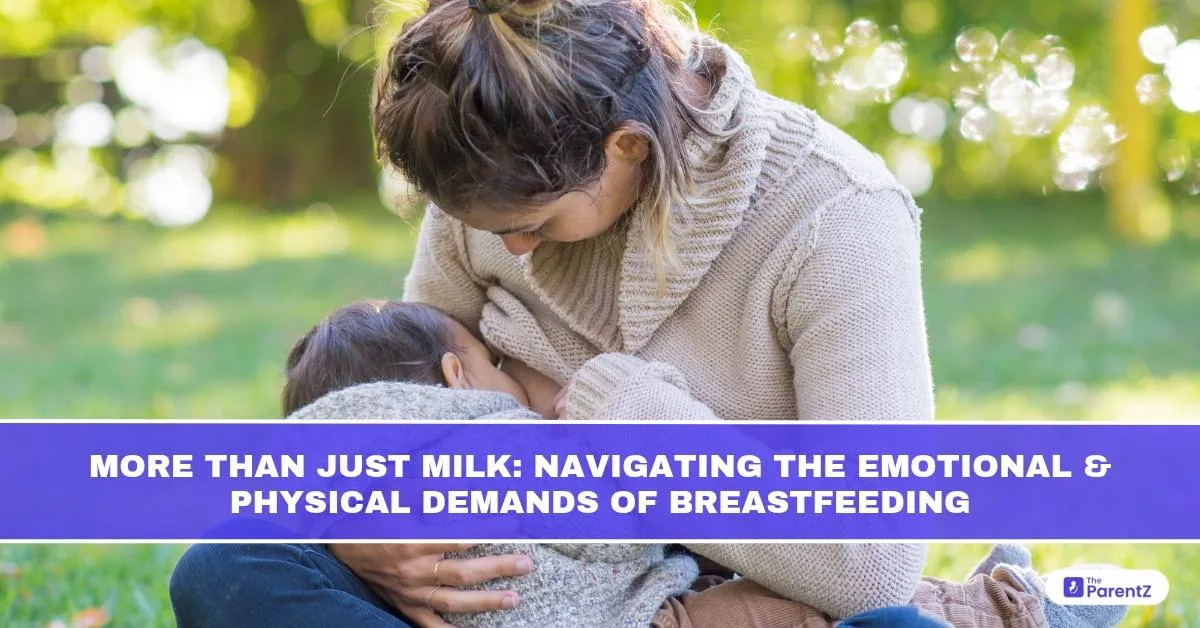Breastfeeding is often portrayed as a serene, natural experience between mother and baby. While it certainly can be, for many mothers, it’s also a deeply emotional and physically demanding journey. From cracked nipples and sleepless nights to hormonal turbulence and overwhelming pressure to “do it right,” breastfeeding challenges are rarely discussed in full. Yet, they are incredibly common.
Understanding both the emotional and physical demands of breastfeeding is essential not just for mothers, but for families, health professionals, and society at large. Supporting a breastfeeding mother goes beyond simply ensuring latch and milk supply; it involves empathy, informed care, and space for her mental well-being.
The Physical Demands of Breastfeeding
1. Pain and Discomfort Are Not Always Normal
While initial tenderness is common, prolonged or severe pain during feeding is not. Cracked nipples, engorgement, mastitis, or blocked ducts can make feeding extremely painful. A poor latch or incorrect position is often the root cause. Studies show that unresolved physical pain is a major reason for early weaning.
2. Constant Energy and Nutritional Drain
Lactation increases a mother’s energy needs by approximately 500 calories per day. Dehydration, skipped meals, or lack of rest can quickly leave a mother feeling drained, dizzy, or irritable. According to the CDC, nursing mothers need adequate iron, calcium, vitamin D, and hydration to sustain both milk supply and personal health.
3. Sleep Disruption and Hormonal Fluctuations
Night feeds disrupt circadian rhythms, and this chronic sleep deprivation has been linked to higher risks of postpartum mood disorders. Oxytocin and prolactin, key breastfeeding hormones, fluctuate in ways that can affect sleep patterns, mood, and even memory.
The Emotional Landscape of Breastfeeding
1. The Pressure to Perform
From public health campaigns to social media “mom-fluencers,” there’s intense pressure on mothers to breastfeed exclusively. While well-intentioned, this pressure can create guilt and shame in those who struggle or choose not to. A 2018 study published in Maternal and Child Health Journal found that over 60% of mothers reported feeling judged or inadequate over their feeding choices.
2. Emotional Bonding Isn’t Instant for Everyone
Though breastfeeding is often romanticized as a bonding moment, not every mother feels emotionally connected during feeds. Some experience discomfort, disconnection, or even aversion. This can lead to guilt, especially when societal narratives frame breastfeeding as essential for bonding.
3. The Hidden Impact of D-MER
Dysphoric Milk Ejection Reflex (D-MER) is a little-known condition where mothers experience sudden feelings of sadness, anxiety, or irritability just before milk let-down. It’s physiological, not psychological, but often misdiagnosed as postpartum depression or anxiety.
4. Isolation and Loneliness
Breastfeeding can feel like a full-time, solitary job, especially in the early weeks. When feeding falls entirely on the mother, it can create resentment or emotional fatigue. Partners, family members, and even friends may unintentionally alienate the mother by assuming she “has it under control.”
The Mental Load of Feeding
Breastfeeding is not just a feeding activity; it comes with a cognitive and emotional load. Mothers are constantly tracking:
- Feeding times and durations
- Diaper counts
- Baby’s weight gain
- Milk supply
- Sleep patterns
This invisible mental checklist contributes to maternal burnout. A 2020 study in Journal of Human Lactation found that mothers who lacked emotional support during lactation were 2.5 times more likely to experience depressive symptoms.
Breastfeeding and Postpartum Mental Health
Breastfeeding is closely linked to postpartum mental health, in both positive and negative ways.
Positive impacts include hormonal support from oxytocin that may enhance maternal calmness and bonding. However, breastfeeding difficulties, especially if unresolved, can increase the risk of postpartum anxiety and depression.
It’s important for health professionals to screen for mental health concerns during postnatal visits and offer holistic care. Formula feeding, if needed, should never be framed as failure but as a valid, nourishing choice.
Redefining Support: What Mothers Actually Need
1. Empathetic and Skilled Lactation Support
Lactation consultants and trained nurses should provide judgment-free help with latch, positioning, and pain management. Early intervention can prevent complications.
2. Normalising All Feeding Journeys
Whether it’s exclusive breastfeeding, pumping, mixed feeding, or formula—mothers deserve respect for doing what’s best for their family’s reality. Feeding success should be defined by maternal mental health and infant well-being, not just breastfeeding rates.
3. Partner and Family Involvement
When partners actively support by handling night duties, burping, or even feeding pumped milk, it reduces maternal overload. Emotional reassurance also goes a long way in protecting maternal mental health.
4. Societal Shifts and Workplace Policies
Extended maternity leave, breastfeeding rooms, and flexible work hours can drastically improve lactation success and reduce stress. According to WHO, workplace barriers are a major reason why urban mothers stop breastfeeding before 6 months.
Conclusion
Breastfeeding is more than a milk-transfer process; it’s a deeply layered emotional and physical journey. A mother giving her body, sleep, time, and energy to nourish another human needs more than just admiration; she needs actionable support. Respect, empathy, and education must replace pressure, judgment, and misinformation.
Whether a mother breastfeeds for a week, six months, or not at all, her journey deserves to be acknowledged, honored, and supported.
References
- Kendall-Tackett K. A new paradigm for depression in new mothers: the central role of inflammation and how breastfeeding and anti-inflammatory treatments protect maternal mental health. Int Breastfeed J. 2007
- Gribble KD, et al. Mental health of breastfeeding mothers: A review of the literature. J Hum Lact. 2020
- World Health Organization. Protecting, promoting and supporting breastfeeding: implementation guidance. WHO, 2018
- Dee DL, Li R, Lee LC, et al. Associations between breastfeeding practices and postpartum depression. Matern Child Health J. 2007
- Forster DA, et al. Women’s experiences of early breastfeeding support: a qualitative study. Midwifery. 2019



Be the first one to comment on this story.